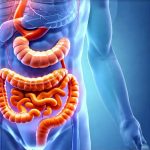Chronic overeating, a prevalent issue in modern society, extends far beyond simple weight gain. It’s a systemic stressor that profoundly impacts digestive health, often initiating a cascade of imbalances beginning with alterations to stomach acid balance and significantly increasing the risk of chronic indigestion. The consistent overloading of the digestive system doesn’t just stretch the stomach; it fundamentally changes how our bodies process food, leading to adaptations – not necessarily beneficial ones – in gastric secretions and motility. These adaptations, over time, contribute to a vicious cycle where symptoms worsen and become increasingly difficult to manage.
The impact isn’t limited to those who visibly struggle with obesity. Even seemingly moderate but consistent overconsumption of calories, particularly processed foods high in fat and sugar, can disrupt the delicate equilibrium of the digestive system. This disruption doesn’t always present as immediate discomfort; instead, it often manifests subtly at first – perhaps as bloating after meals, a feeling of fullness that lingers longer than usual, or increased gas. These seemingly minor issues are often dismissed but represent early warning signs of underlying imbalances taking shape within the gastrointestinal tract. Ignoring these signals can lead to more serious and persistent digestive problems down the line. Understanding irregular eating habits is a crucial first step in addressing these issues.
The Interplay Between Overeating And Stomach Acid Production
The human stomach relies on a carefully calibrated balance between acid production, bicarbonate secretion (to neutralize acid), and gastric motility – the muscular contractions that mix food with digestive juices. Chronic overeating throws this balance off kilter in several ways. Initially, frequent large meals stimulate increased acid production as the stomach attempts to cope with the workload. This can lead to heartburn or acid reflux, especially if the lower esophageal sphincter isn’t functioning optimally. However, prolonged and consistent hyperstimulation eventually leads to a phenomenon known as “adaptive acidity,” where the stomach becomes less sensitive to signals that regulate acid secretion.
This adaptive acidity doesn’t mean more acid is always present; rather, it means the mechanisms controlling acid production become dysregulated. The parietal cells – responsible for acid secretion – can become exhausted over time, leading to hypochlorhydria (low stomach acid). This paradoxically occurs as a consequence of chronic hyperstimulation. Low stomach acid impairs protein digestion, hinders nutrient absorption (particularly iron, vitamin B12, and calcium), and creates an environment more favorable for bacterial overgrowth in the small intestine. Furthermore, reduced acidity compromises the stomach’s role in killing harmful bacteria ingested with food. Dietary choices play a significant role here; many struggle with high-fat diets which exacerbate these issues.
The relationship is further complicated by dietary choices frequently associated with overeating. High-fat foods, for example, slow gastric emptying, prolonging the time food remains in the stomach and potentially exacerbating acid reflux. Sugary foods can contribute to inflammation within the digestive tract, further disrupting normal function. This complex interplay underscores why simply reducing calorie intake isn’t always enough; focusing on what you eat alongside how much is crucial for restoring digestive balance. The long-term consequences of these choices extend beyond just digestion – consider ultra-processed foods and their impact on overall health.
The Role of Gastric Emptying & Motility
Gastric emptying – the rate at which food moves from the stomach to the small intestine – is profoundly affected by chronic overeating. Normally, this process is tightly regulated based on meal size and composition. However, consistently large meals stretch the stomach, diminishing its ability to contract effectively and slowing down emptying. This delayed gastric emptying contributes directly to indigestion symptoms like bloating, fullness, nausea, and abdominal discomfort. It also increases the risk of acid reflux as more food remains in the stomach for longer periods.
Furthermore, chronic overeating can disrupt gastric motility – the rhythmic contractions that mix food with digestive enzymes. These contractions are crucial for breaking down food into smaller particles and propelling it towards the small intestine. Over time, the constant strain on the digestive muscles can lead to impaired motility, resulting in a sluggish digestive system. This impairment affects not just digestion but also nutrient absorption and waste elimination. Some individuals may experience gastroparesis – a condition where the stomach empties too slowly – as a result of prolonged disruption to gastric motility.
- Addressing this requires focusing on smaller, more frequent meals.
- Incorporating fiber-rich foods can help regulate gastric emptying (but introduce them gradually).
- Gentle exercise and stress management techniques are also beneficial for promoting healthy digestive function. Understanding gut motility is key to improving these functions.
The Impact On The Gut Microbiome
Chronic overeating doesn’t just affect the stomach itself; it has a significant impact on the gut microbiome – the trillions of bacteria, fungi, viruses, and other microorganisms that reside in our digestive tract. These microbes play a vital role in digestion, immunity, and overall health. An unhealthy diet characterized by excessive calorie intake, particularly of processed foods, disrupts the delicate balance of the gut microbiome, leading to dysbiosis (an imbalance in microbial communities).
Dysbiosis can manifest as an overgrowth of harmful bacteria and a reduction in beneficial bacteria. This altered microbial composition impairs digestion, reduces nutrient absorption, and increases inflammation within the digestive tract. Moreover, certain bacterial species produce gases during fermentation that contribute to bloating and discomfort. The gut microbiome is also intimately linked to stomach acid production; imbalances can further exacerbate acidity issues. A healthy gut relies on high-microbiome diversity for optimal function.
- Probiotic supplements or fermented foods (like yogurt, kefir, and sauerkraut) can help restore a healthy gut microbiome.
- A diet rich in prebiotic fibers (found in fruits, vegetables, and whole grains) nourishes beneficial bacteria.
- Reducing sugar intake is crucial as it fuels the growth of harmful bacteria. The impact of artificial flavors on this delicate balance should also be considered.
The Vicious Cycle Of Indigestion & Overeating
Chronic indigestion – characterized by persistent discomfort in the upper abdomen – is a common consequence of long-term overeating and disrupted stomach acid balance. The symptoms can vary widely, including bloating, fullness, nausea, heartburn, belching, and abdominal pain. Indigestion not only diminishes quality of life but also creates a vicious cycle that perpetuates the problem. When experiencing digestive discomfort, individuals may instinctively avoid certain foods or alter their eating habits in ways that are ultimately counterproductive.
For example, fearing bloating, someone might restrict fiber intake, leading to constipation and further digestive issues. Others may gravitate towards bland, easily digestible foods – often lacking essential nutrients – which can exacerbate underlying imbalances. Furthermore, the emotional stress associated with chronic indigestion can lead to emotional eating, reinforcing the cycle of overeating and discomfort. Breaking this cycle requires a holistic approach that addresses both dietary habits and underlying digestive imbalances. Frequent snacking can also contribute to this cycle, making mindful eating even more important.
- Seeking professional guidance from a registered dietitian or gastroenterologist is crucial for developing a personalized plan.
- Mindfulness techniques can help individuals become more aware of their hunger and fullness cues, promoting mindful eating practices.
- Gradually introducing changes to diet and lifestyle is often more sustainable than drastic restrictions.


















